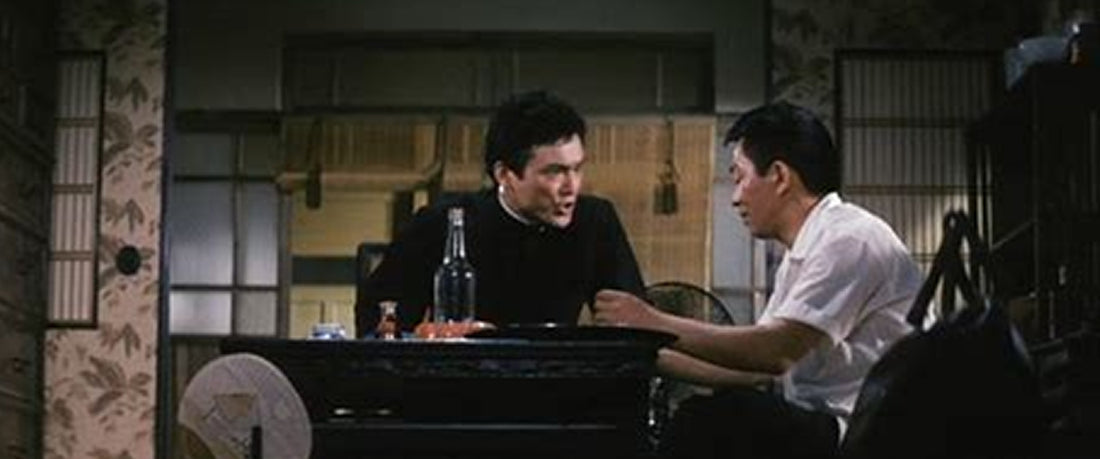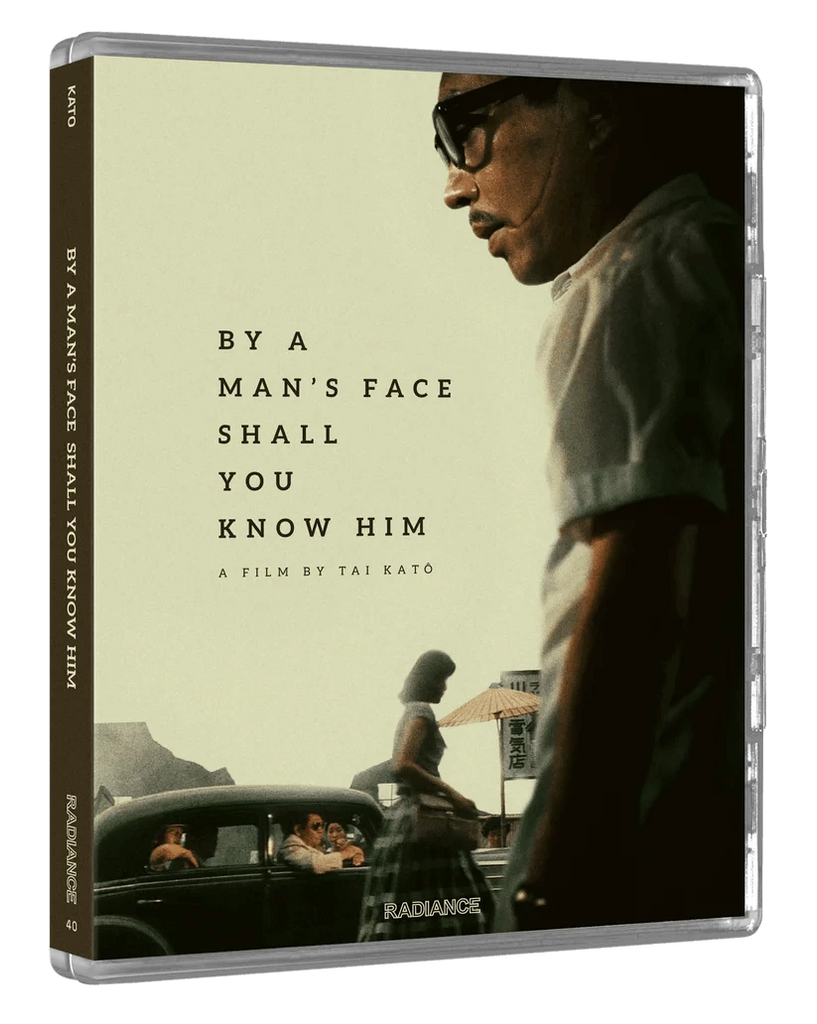
By A Man’s Face You Shall Know Him
I’ve previously written at length about the joy of discovering new films and filmmakers through Radiance Films — one of which was I, The Executioner (1968), a brutal neo noir which introduced me to Akira Kurasawa’s former apprentice Tai Kato. Radiance are clearly passionate about restoring and celebrating his work, as they have also published Tai Kato, the first extensive writing on the director (by Tom Mes), and are now releasing another one of his films By A Man’s Face You Shall Know Him (1966). This kind of continued curation from Radiance is valuable as it provides an opportunity to satisfy newfound curiosity by digging deeper into an extraordinary director’s filmography.
By A Man’s Face You Shall Know Him explores post-war tensions in a small community in Tokyo as The Nine Heavens Gang (made up of Korean nationals) terrorise local residents and plan to takeover their market and turn it into an entertainment district. Doctor Amamiya (real-life ex Yakuza Noboru Andō) owns the targeted land and, after serving in the War, desires to stay out of the conflict because he has seen enough bloodshed for one lifetime. Things become complicated by the return of his younger brother Shunji (future filmmaker Jūzō Itami), who is disgusted by Amamiya’s position and joins the uprising after falling in love with a local Korean woman Gye Hye-chun (Akemi Mari). He is aided by Choi (Ichiro Nakatani), a member of the Nine Heavens Gang who disapproves of his group’s behaviour and had previously passed as Japanese and served under Amamiya during World War Two. Shunji soon finds himself in grave danger, which finally forces Amamiya into violent action. The film is told seamlessly across three time periods; the war, the post-war conflict described and during the present day, where Amamiya is reunited with Choi once again when he is rushed into Amamiya’s medical practice for emergency surgery.
From the opening credits which state that “the producers of this film made this drama in the belief that someday mankind can live in harmony,” Tai Kato sets out to use the Yakuza genre as a backdrop to tell a story about the pointless cyclical nature of violence and reckon with Japan’s complicated past. The film is significant for being one of the first films to tackle the taboo subject of Japan’s Korean nationals. At this point it is important to point out that the Korean gang members are played by Japanese actors and many of the gang members are portrayed as one-dimensionally evil. You could argue Kato aims to balance this out with the film’s portrayals of Eye Hye-chin and Choi, but as a modern viewer, it ultimately stills feels like an uncomfortable depiction.
Read the rest of the article by Jimmy Dean on The Geek Show
